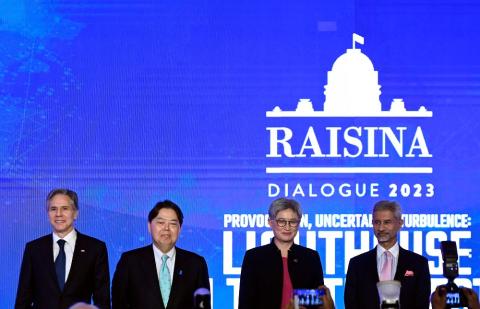
Let’s abandon the misconception that only deaf and disabled people benefit from subtitled television. If you were one of the 5.7 million viewers in the UK who watched the Korean drama Squid Game last month and opted for subtitles, you’ll know what I mean.
Everyone who watches content with subtitles does so to engage with a show and process information in a way they otherwise couldn’t. In every situation, subtitles are an accessibility feature.
Channel 4’s subtitles outage in September affected huge numbers of viewers. Damage to hard drives caused by the triggering of the fire suppression system at the London base of Red Bee Media – which provides access services to large broadcasters – left Channel 4 viewers without subtitles for weeks, with casualties including the latest series of The Great British Bake Off.
Accidents happen, and sometimes there’s no one to blame. But Channel 4’s response to the incident was lacklustre. It was not the only broadcaster affected – Channel 5 and the BBC also experienced loss of subtitles. Yet months later, it is the only channel yet to resume normal service across both its live programming and catch-up service. It has only sorted the former. The broadcaster took nearly a month to fix the subtitles on their broadcast output, although this was quicker than the mid-November date they’d initially predicted, due to having “to build a completely new system”.
As well as that, Red Bee and Channel 4 failed to provide detailed and consistent updates on the situation. Over a fortnight after the initial outage, the Royal National Institute for Deaf People published a statement on their website in which they singled out Channel 4 for criticism. It stated: “We do not believe that they have communicated effectively with the deaf community.” They had to resort to writing to the broadcaster to ask them to provide the deaf community with updates on – among other things – how long the situation would continue. Granted, Channel 4 did issue a series of press releases with updates on the situation, but they came far too late – making deaf and disabled viewers like me feel completely disrespected.
Also, returning subtitles to live programming does not mean the issue is over and done with – and we cannot give Channel 4 an easy ride on the matter. There is still a huge problem with catchup services. I approached Channel 4 for a comment as part of my reporting on the issue, and a spokesperson told me the subtitling backlog for this won’t be resolved until the second week of December. That’s two and a half months after the initial incident – which is shameful.
Deaf and disabled people should not be waiting for access, and yet they are. In some instances, we miss out on programmes completely, with them disappearing from our screens and streaming services before they have a chance to be subtitled. This is especially the case for US programmes licensed by Channel 4, which have a limited shelf life on All 4 due to rights reasons. It has already caused issues for those looking to watch series five, episode one of the US legal drama The Good Fight, which was taken off All 4 at the end of November before it could be captioned. Deaf and disabled users have now been cut out of a conversation they were entitled to enjoy at the same time as everyone else.
It’s outrageous, though unsurprising. Deaf people often find themselves left behind the zeitgeist. The state of UK cinemas is so dire in terms of accessibility that I have to wait weeks for a subtitled screening. Provided the captions file doesn’t encounter any technical difficulties – as happened when I finally got to see No Time to Die last month and a big cinema chain ended up running a version without subtitles instead – I can join the conversation around the latest blockbuster release several weeks late. In that time, friends and family members may well have moved on to the next big thing.
Another prominent example of failure to serve deaf viewers is the UK government’s coronavirus briefings. Having rejected a petition signed by over 26,000 people, the government’s refusal to provide a British Sign Language (BSL) interpreter is forcing deaf people to receive public health information from unofficial channels or via word of mouth.
As for All 4, what does it say when a service that could help us deaf and disabled viewers “catch up” on content we missed the first time (because it wasn’t subtitled) isn’t accessible, either? It’s a damning stain on the reputation of a broadcaster that has long put diversity and inclusion at the forefront of its branding.
Eventually, captions will come back to All 4, but the trust Channel 4 has built up with deaf and disabled subtitles users will take much longer to rebuild. The National Deaf Children’s Society has estimated that the broadcaster will fail to meet the annual 90% target for subtitled content it is legally obligated to provide by the Communications Act 2003. This is unacceptable. Ofcom has suggested that they intend to take enforcement action if this happens, and they must not take this infringement lightly, if so. Ofcom needs to make sure that any action taken is to the greatest extent possible. Channel 4 must take its responsibilities to deaf and disabled viewers far more seriously – and the regulator needs to send a strong message to the broadcaster to ensure this happens.
Even if this were to be the case, it would not necessarily solve the situation with All 4, which could still justifiably fail to provide access under current regulation. Unlike TV channels, streaming services have no legal obligation to provide access services. The Digital Economy Act 2017 allows the culture secretary to impose requirements on providers, but we’ve yet to see this done.
This has to change. A failure to start regulating catch-up services on their access provision would mean broadcasters can fail to give sufficient priority to subtitling on these platforms, without consequences. When TV channels fall foul of accessibility requirements, they risk Ofcom breathing down their neck, ready to take regulatory action. It’s time the government recognises the contribution catch-up services make to the world of entertainment, and legislates to ensure that every viewer’s experience is accessible.
It’s a move that is long overdue. Only when this happens, together with strong action against Channel 4 from Ofcom, will the public be able to have any confidence that we can prevent such a dire case of inaccessibility from happening again.
Liam O’Dell is an award-winning deaf and disabled journalist and campaigner.












